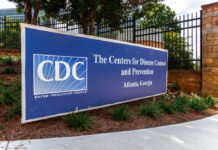
The critical midlife window for cognitive health is under scrutiny, emphasizing early lifestyle interventions to combat accelerated brain aging.
Story Highlights
- Research identifies midlife as a crucial period for preventing cognitive decline.
- Early lifestyle choices significantly impact brain health in later years.
- Cognitive aging research now targets interventions beginning in the 40s.
- There’s a growing call for public health campaigns focusing on midlife prevention.
Midlife: A Critical Window for Cognitive Intervention
Recent studies underscore midlife, particularly starting around age 44, as a pivotal time for interventions aimed at preventing accelerated brain aging. This shift highlights the importance of addressing lifestyle factors such as diet, exercise, and stress management early on. The Stony Brook University study, among others, suggests that focusing on these modifiable risk factors before age 60 could significantly alter the trajectory of cognitive decline.
These findings are crucial for those who prioritize individual health management over reliance on government healthcare systems. By taking proactive steps to maintain cognitive health, individuals can potentially reduce their future dependency on public health services, aligning with the conservative value of self-reliance.
People following a combination of healthier habits slowed typical age-related cognitive decline — achieving scores on brain tests as if they were a year or two younger, researchers reported in JAMA and at the Alzheimer’s Association International Conference.…
— PBS News (@NewsHour) September 8, 2025
The Role of Early Lifestyle Choices in Brain Health
Evidence from longitudinal studies, such as those conducted by UCSF, indicates that health and lifestyle in one’s 20s have a measurable impact on cognitive performance decades later. Chronic inflammation, often driven by lifestyle choices, emerges as a key modifiable risk factor. This revelation underscores the importance of adopting healthy habits early in life to prevent cognitive issues in midlife and beyond.
For conservatives, who often emphasize personal responsibility, these findings resonate with the belief in taking charge of one’s health and future. By addressing these factors early, individuals can protect their cognitive health and, by extension, their autonomy.
Public Health Campaigns and Societal Awareness
There is a growing consensus on the need for public health campaigns to address lifestyle factors among young adults and midlife populations. As awareness of midlife cognitive changes increases, more adults are seeking interventions to maintain their brain health. This shift not only promises to improve individual health outcomes but also to reduce the future burden on healthcare systems through preventative measures.
Such campaigns align with the broader conservative perspective that emphasizes the importance of informed choice and personal accountability in health matters. By empowering individuals with knowledge and resources, these efforts support the goal of enhancing personal and communal resilience against future health challenges.
Sources:
Heiskanen et al., 2024, longitudinal study on cognitive performance in midlife
UCSF, 2024, study on inflammation in 20s and midlife cognition
Stony Brook University, 2025, S-shaped trajectory of brain aging and intervention windows
Preventive steps in midlife can help to lower dementia risk


















